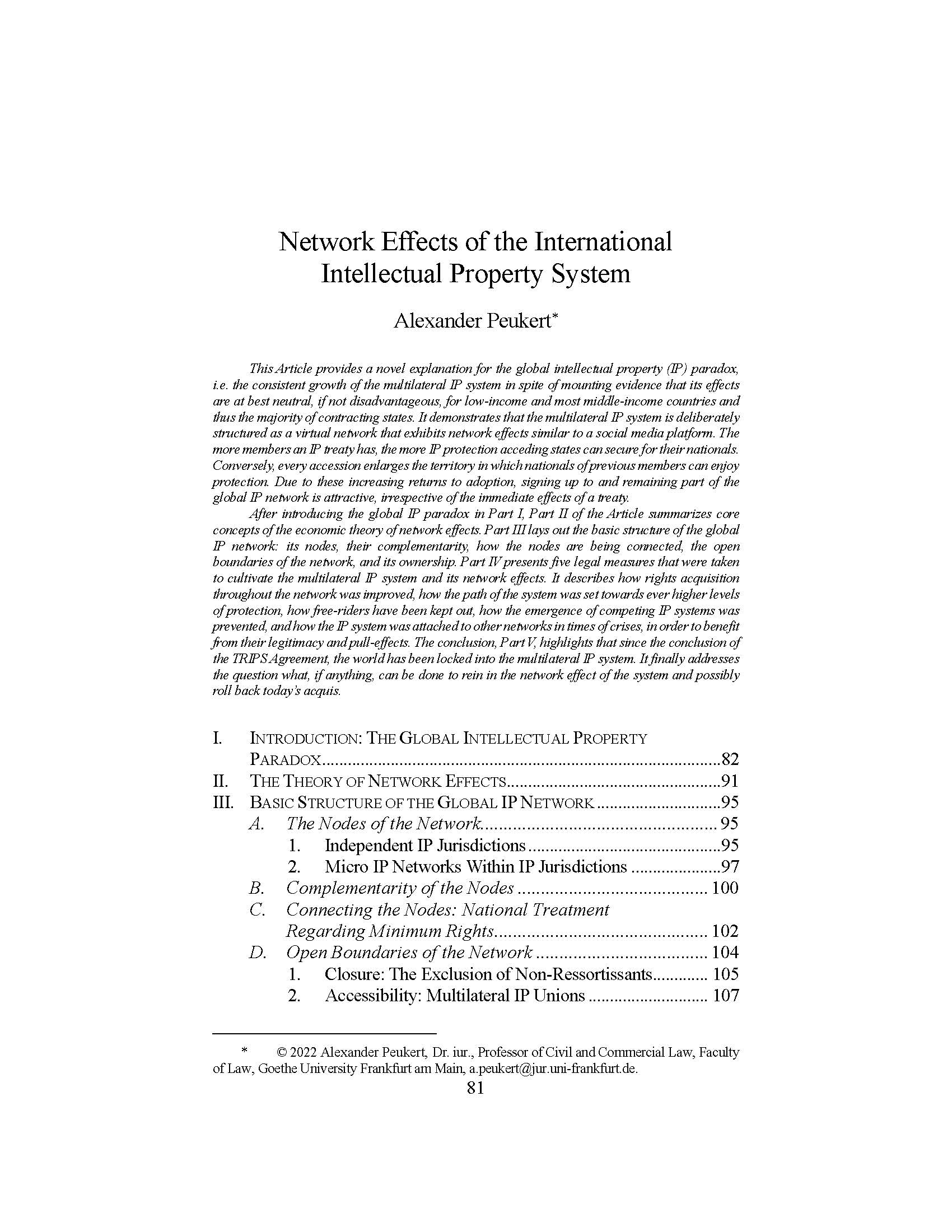Network Effects of the International Intellectual Property System
Abstract
This Article provides a novel explanation for the global intellectual property (IP) paradox,
i.e. the consistent growth of the multilateral IP system in spite of mounting evidence that its effects
are at best neutral, if not disadvantageous, for low-income and most middle-income countries and
thus the majority of contracting states. It demonstrates that the multilateral IP system is deliberately
structured as a virtual network that exhibits network effects similar to a social media platform. The
more members an IP treaty has, the more IP protection acceding states can secure for their nationals.
Conversely, every accession enlarges the territory in which nationals of previous members can enjoy
protection. Due to these increasing returns to adoption, signing up to and remaining part of the
global IP network is attractive, irrespective of the immediate effects of a treaty.
After introducing the global IP paradox in Part I, Part II of the Article summarizes core
concepts of the economic theory of network effects. Part III lays out the basic structure of the global
IP network: its nodes, their complementarity, how the nodes are being connected, the open
boundaries of the network, and its ownership. Part IV presents five legal measures that were taken
to cultivate the multilateral IP system and its network effects. It describes how rights acquisition
throughout the network was improved, how the path of the system was set towards ever higher levels
of protection, how free-riders have been kept out, how the emergence of competing IP systems was
prevented, and how the IP system was attached to other networks in times of crises, in order to benefit
from their legitimacy and pull-effects. The conclusion, Part V, highlights that since the conclusion of
the TRIPS Agreement, the world has been locked into the multilateral IP system. It finally addresses
the question what, if anything, can be done to rein in the network effect of the system and possibly
roll back today’s acquis.
